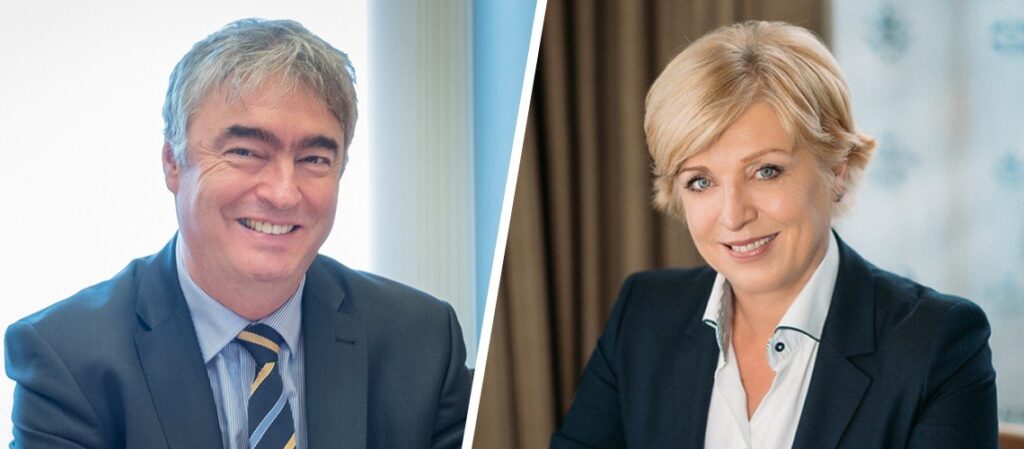In a plenary session on Wednesday, the Members of the European Parliament spoke about Hungary’s alleged interference in the media in Slovenia and Northern Macedonia. MEPs Milan Zver, Ph.D., and Romana Tomc, also took part in the discussion. MEP Zver initially pointed out that he is disappointed with the intentions behind this matter being on the agenda. “The proponents surely know that the free movement of capital is one of the fundamental freedoms of the alliance, but that obviously does not seem to matter to them,” he was clear.
At the plenary session, MEP Romana Tomc said that “we are discussing an issue that has been brought up with the sole intention of interfering in the internal affairs and discrediting the Slovenian government. What is absurd about that, is that it is based on the information from an obscure Slovenian web portal, with suspicious and opaque ownership, which is known for its attacks on the centre-right government and also for its journalists, who have already been indicted at the Journalists’ Court of Honour.
MEP Milan Zver continued and said that, as far as he knows, the investments of the private Hungarian parties are in line with the EU law, are transparent, and are exclusively of the business and economic nature and do not represent any government interference in the internal affairs of Slovenia or Northern Macedonia. “After all, a good part of the left-wing media, which has the explicit monopoly in the field of advertising of the public companies, is owned by foreign investors,” he said.
The national media outlet RTV is not independent
MP Tomc pointed out that in Slovenia, “we have a serious problem with the media space, which has been completely unbalanced for the last 30 years. The monopolies that have formed in all areas, from the economy to the judiciary and the media during this time, are in the hands of the left. This prevents the implementation of democratic processes in the country. The national media outlet RTV is a particular problem, as one would expect it to be independent. Unfortunately, that is not the case.” Tomc also pointed out that the dominant media outlets in Slovenia represent as much as 90 percent of the media space and that those owned by Slovenia, are in the hands of the left-wing tycoon elite, which uses the media outlets for their political agenda. “Their power is extraordinary. With a few good exceptions, objective journalism is a myth in Slovenia,” the MP was critical.
Zver also pointed out that there are problems with the media in Slovenia, as the vast majority, especially the central media, are left-wing. “We cannot claim that the media space in Slovenia is balanced and pluralistic. However, investments in new media can increase the plurality of the media and the independence of the journalists, who are nowadays mostly writing what they are told to write by the advertising cliques and the left-wing political elites, who often do not even try to hide their sympathies for the old surviving patterns of communication,” Zver added.
Change is needed
MEP Tomc then added that change is needed and that this does not mean that the independent media should be destroyed – in fact, it means quite the opposite. According to her, the changes should be an attempt to make the media space better – more independent, transparent and balanced. Tomc said that “this case is a very clear proof of how, even in the European Parliament, the Slovenian socialists are abusing the media for their political fights.” At the end of her speech, the MEP added that two former Slovenian journalists would be given the floor after her, who have extensive experience with the unbalanced media space. “They were part of it, and there is no doubt in my mind that they will defend the monopolies in which they operated, with all their might,” Tomc said.
“The media sphere is asymmetric. And on the left, they will do everything they can, to keep it that way, as it allows them to control the media space. However, the Slovenian Democrats want the ratio to improve so that the ten percent share of the right-wing alternative media can increase! That is why the investments from abroad are very welcome; in this sense,” Zver concluded his speech.
Sara Kovač


